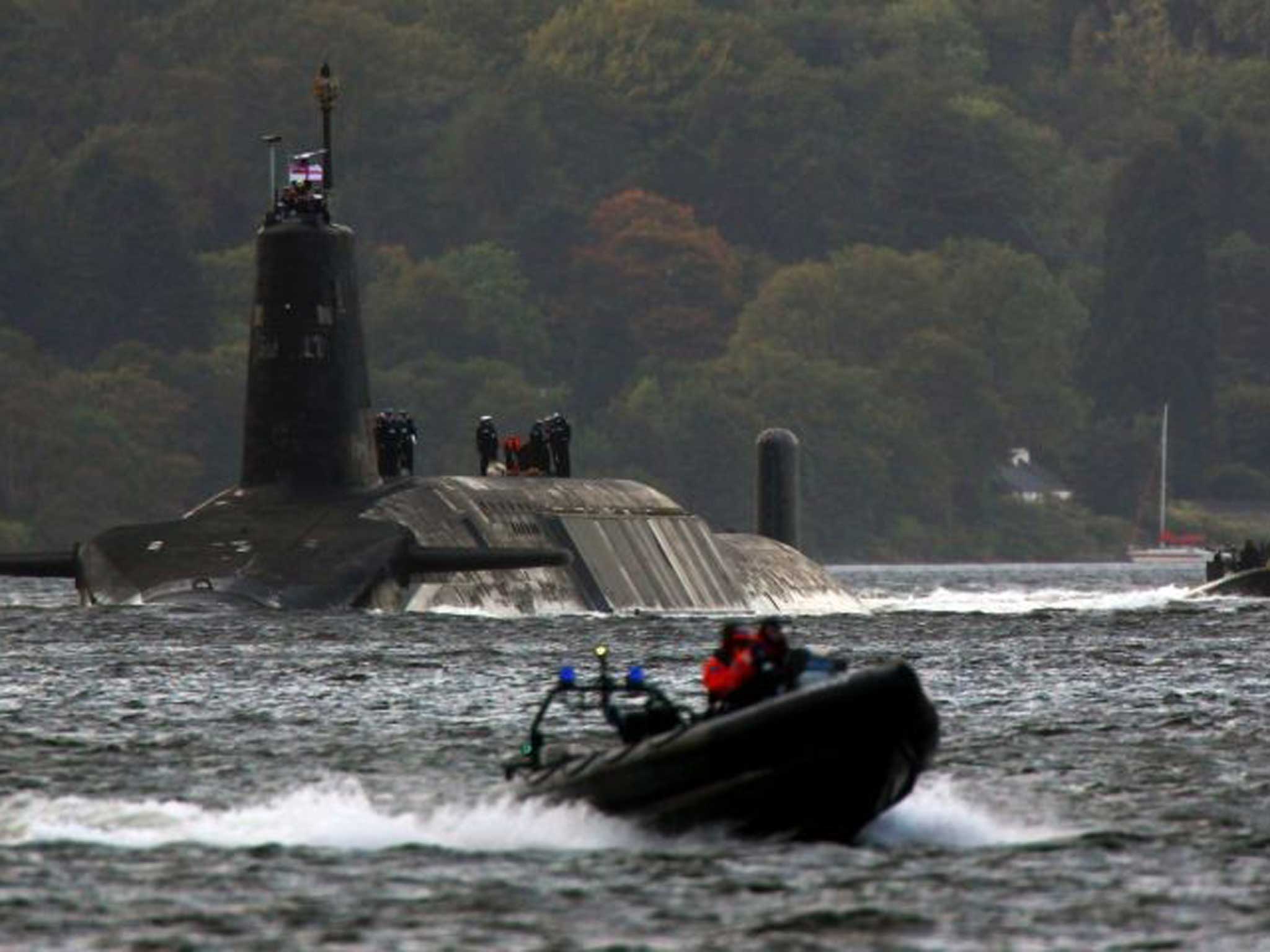Scottish independence: 'Yes' vote could scupper nuclear clean-up
MoD has no contingency plans for decommissioning Britain's atomic submarine fleet should Edinburgh break away

Fears are mounting that Scottish independence could result in years of delays to the decommissioning of Britain's fleet of ageing nuclear-powered submarines, including four armed with Trident missiles.
More than 10 engineering companies have just registered their interest in working with the Ministry of Defence on dismantling and removing waste from 27 submarines in Devonport near Plymouth and Rosyth on the Firth of Forth.
But they are understood to be concerned that a "Yes" vote for independence could complicate the 60-year programme of defuelling and breaking up the submarines – and that the MoD has refused to draw up any contingency plans.
At present, only the seven out-of-service submarines that are currently floating at Rosyth would be dismantled there. However, space at Devonport is tight and it is expected that Rosyth would eventually have to take on more of the dismantling work.
A post-independent Scottish government would have other priorities, such as building frigates. It would also not want Trident-armed submarines waiting for decommissioning in its waters. The Scottish National Party's post-independence priorities include getting rid of nuclear deterrents.
John Large, a leading nuclear submarine expert, said that independence was "a fly in the ointment" that was "creating a problem the MoD had not foreseen". He added that independence could ultimately lead to "years, if not decades" of delays unless costly docks are built elsewhere in the UK.
Jane Tallents, an anti-Trident campaigner who is a member of the Submarine Dismantling Project Advisory Group, said: "When we've raised independence at the advisory group MoD officials have shuffled papers and looked at their feet."
One industry insider said that delays were "absolutely" a risk, but that the Navy just "laughs off independence as something that isn't going to happen". The US has large decommissioning facilities, but these are nearly full to capacity. Sending vessels there would also add to the cost, said to be about £60m a submarine.
The Scottish government is already furious that a site north of the border, Chapelcross in Dumfriesshire, has been shortlisted as a location that could store radioactive waste removed from the submarines.
When the shortlist was revealed in February, Holyrood environment minister Richard Lochhead wrote to UK Defence minister Philip Dunne demanding that the waste should not be dumped in Scotland. Dismantling cannot start until a storage site for the 90- to 135-ton reactor pressure vessels, which hold the submarines' nuclear cores, is agreed upon.
A MoD spokeswoman said: "We are not developing contingency plans for the submarine dismantling project because we are confident that the Scottish people will vote to remain part of the UK."
A Scottish government spokesman said: "Following independence, the precise division of assets and liabilities will be subject to detailed negotiation between the Scottish and UK governments."
Subscribe to Independent Premium to bookmark this article
Want to bookmark your favourite articles and stories to read or reference later? Start your Independent Premium subscription today.

Join our commenting forum
Join thought-provoking conversations, follow other Independent readers and see their replies